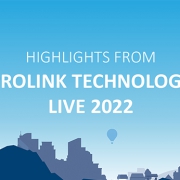Key Affordable Housing Industry Issues in 2025
With 2025 right around the corner, the affordable housing sector continues to grapple with numerous challenges that impact developers, policymakers, and the communities they serve. From regulatory compliance to the efficient management of resources, the industry is at a pivotal point where innovative tools and solutions are not just beneficial but essential for sustainable growth and effectiveness. This post delves into some of the most pressing concerns facing the affordable housing industry and explores the value of specialized tools designed to mitigate these issues.
Regulatory Compliance and NSPIRE Requirements
Compliance with regulatory frameworks is a cornerstone of affordable housing projects. The National Standards for Property Inspection and Reporting Excellence (NSPIRE) has introduced stringent guidelines aimed at ensuring quality and accountability. Meeting these requirements can be resource-intensive, requiring meticulous documentation, regular inspections, and adherence to safety and maintenance standards.
Many software solutions can help to streamline the compliance process by automating documentation, scheduling inspections, and providing real-time tracking of compliance status. These tools not only reduce administrative burdens but also minimize the risk of non-compliance penalties, ensuring that projects remain on track and within legal parameters.
Efficient Waitlist Management
Managing waitlists for affordable housing units, especially for prioritized groups such as the elderly or veterans, poses significant challenges. Manual systems are prone to errors, delays in notifications, and difficulty in prioritizing applicants based on eligibility criteria. Housing finance agencies may also struggle to notify other organizations who are helping prioritized groups of when an affordable unit becomes available.
Developing uniform criteria for eligibility and prioritization can ensure fairness and transparency in the allocation process. Standardization can help with minimizing biases and discrepancies, ensuring that priority groups receive timely access to housing. Utilizing predictive analytics can also help anticipate demand fluctuations and adjust waitlist priorities accordingly. By analyzing trends and demographic data, housing authorities can make informed decisions to optimize resource allocation.
Construction Costs and Supply Chain Disruptions
Rising construction costs and supply chain disruptions have a direct impact on the feasibility and timelines of affordable housing projects. Fluctuations in material prices, labor shortages, and delays in procurement can lead to budget overruns and extended project durations.
Investing in training programs to address labor shortages can ensure a steady supply of skilled workers. Partnerships with vocational schools and community colleges can help build a robust labor pipeline. Streamlining regulatory processes can also help to reduce delays as well as associated costs.
Sustainability and Energy Efficiency
There is an increasing demand for affordable housing projects to incorporate sustainable and energy-efficient practices. Balancing environmental goals with cost constraints presents a significant challenge.
There are also numerous initiatives, such as the Greenhouse Gas Reduction Fund (GGRF) programs and the Energy Efficiency Buildings Deduction, which aim to incentivize a more green approach to affordable housing development, with the goal of reaching net-zero emissions.
As the affordable housing industry moves towards 2025, addressing these critical concerns with the aid of specialized tools and processes becomes crucial. From ensuring regulatory compliance to optimizing financial operations and fostering community engagement, technology plays a pivotal role in overcoming the sector’s challenges. By leveraging these solutions, stakeholders can enhance the effectiveness, sustainability, and accessibility of affordable housing projects, and help make a meaningful impact on communities in need.














Leave a Reply
Want to join the discussion?Feel free to contribute!